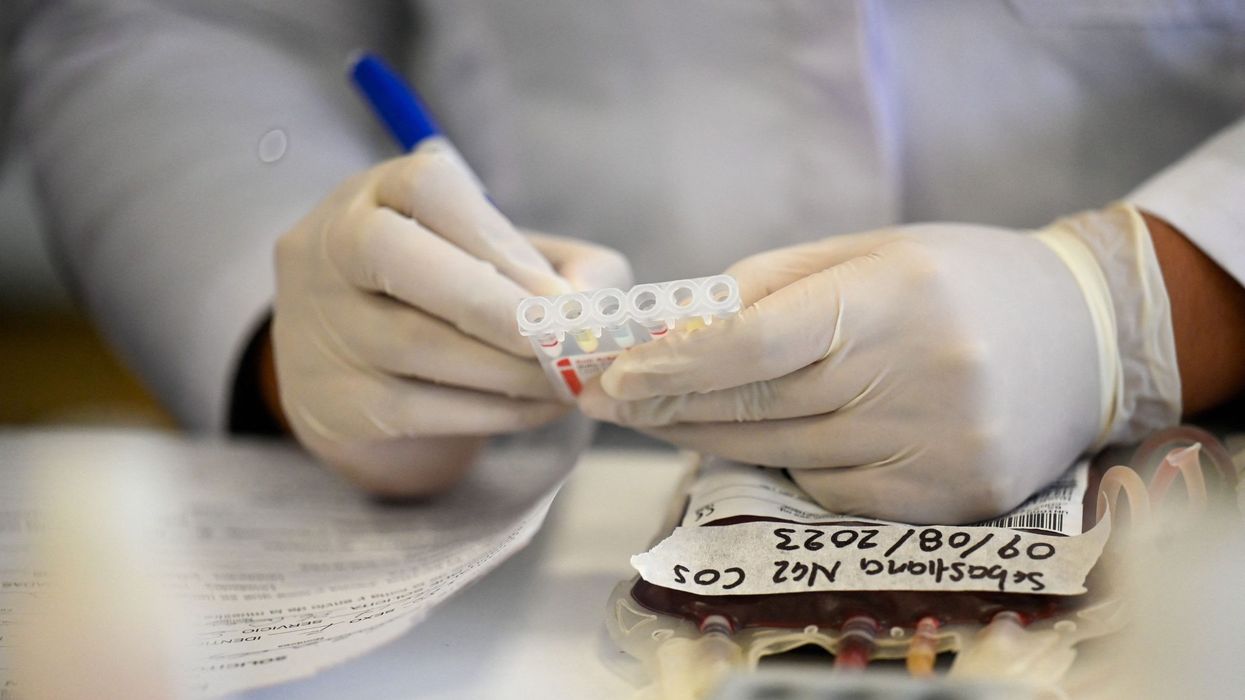"With pressures on GPs and secondary care, it makes sense to commission testing via community pharmacies", says community pharmacist and independent prescriber Atul Patel responding to the NICE guidance.
The National Institute for Health and Care Excellence (NICE) has published a new diagnostic guidance to enhance CYP2C19 genotype testing to guide clopidogrel use for patients who have suffered an ischemic stroke or transient ischemic attack.
Published in July, the diagnostic guidance also emphasised the vital role of pharmacists and pharmacies in the implementation of CYP2C19 genotype testing used to guide prescribed antiplatelet medication.
According to the NICE guidance, pharmacists with their expertise in pharmacogenomics and patient medication management, will be integral in interpreting test results and recommending appropriate antiplatelet therapy.
It also highlighted the need for close collaboration with other healthcare professionals to ensure effective implementation across various care settings for stroke patients.
The diagnostics advisory committee, a standing advisory committee of NICE, agreed that it should be possible to gather samples for genotype testing at a location that is convenient for the person having the test and highlighted the role of pharmacies as accessible locations for CYP2C19 genotype testing.
The guidance suggests that utilising pharmacies for point-of-care testing can enhance the accessibility and convenience of the testing process, particularly in community settings.
To address this, the committee agreed that blood samples or cheek swabs for genotype testing could be collected at local pharmacies, GP surgeries, or even in patients’ homes, provided certain conditions are met.
This approach not only increases accessibility but also aligns with the broader NHS strategy of making healthcare services more community-focused.
The committee also raised concerns about potential delays in starting antiplatelet treatment while waiting for test results.
The model developed by the External Assessment Group (EAG) recommends initiating clopidogrel treatment immediately, with the option to switch to an alternative if the genotype testing later indicates a loss-of-function allele.
This ensures that treatment is not delayed, addressing a key concern raised by stakeholders.
There is also recognition of the higher prevalence of CYP2C19 loss-of-function alleles in certain populations, which could influence the choice of antiplatelet therapy.
A recent study, for example, reported that 57 per cent of a cohort from Bangladeshi and Pakistani backgrounds in the UK had at least one loss-of-function allele.
This data underlines the importance of personalised medicine, an area where pharmacists can play a significant role through shared decision-making with patients.
Personalised approach to prescribing
Expressing strong support for the integration of pharmacogentic testing into routine care, Atul Patel, an Independent Prescribing Pharmacist, told Pharmacy Business:
"I think there is a very strong case to introduce a personalised approach to prescribing through pharmacogenetic.
"Routine testing patients for common drug–gene interactions, which already happens in countries across the world, could reduce drug adverse reactions by a third and better guide appropriate drug use," he said.
"There are many potential drugs for pharmacogenomic testing but it makes sense to start with the most commonly prescribed medications such as benzodiazepines and clopidogrel (gene CYP2C19).
Patel also highlighted the relation between another gene type, CYP2D6, that is responsible for the metabolism and elimination of around a quarter of medicines.
He said that "variants can render people slow or fast metabolisers who would benefit from an adjustment of dose to suit the patients or prescribe an alternative that would be safer.
"With pressures on GP’s and secondary care it makes sense to commission testing via community pharmacies as many now who have trained phlebotomist on site making it easier for patients to access this service."
Reflecting on the recent ransomware cyber-attack against Synnovis, a pathology laboratory which processes blood tests on behalf of a number of NHS organisations, primarily in South East London- where Patel's pharmacy is located, he stated:
"The clinical impact of the attack had seen a significant reduction in the number of tests that could be processed and reported back to clinical teams.
"To ensure continuity of care it would have made sense to commission blood testing via pharmacies that are already providing private blood test.
"A practical solution was in place but was not used to ensure continuity of care."
He believes that the integration of community pharmacy in the clinical pathway would ensure safe and tailored prescribing for patients in the future, for both GP's and pharmacist, especially considering the introduction of the IP pathfinder program.












